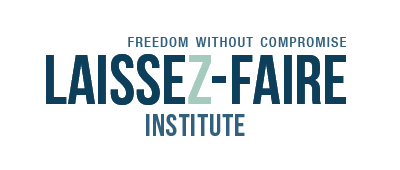If we use only one word to name two different things that sometimes appear together, those two things eventually become a single one in the popular imaginary. This is the case for the term "public".
Public, as opposed to private. But there are two types of "private": that which is of exclusive use for a few, and that which is private property.
And there are two types of "public": that which many use freely, and that which belongs to the state. Under a same term, "from the state" and "for everybody" became synonyms. But the state is not, and never will be, for all.
That confusion serves very well the interests of the state itself, which takes advantage of the positive aura that the term "public" gives. Somehow, it is that which is everybody's, by everybody, for everybody. It represents the general will, containing a little bit of each citizen, it's an ordering force that hovers over society — utterly different from the private sector, where reigns greed, the quest for profit (that capital sin!) and particular (private!) interests.
Many people do not realize that "state" and "society" are not the same thing
When we say that the state is public, we are repeating spiritual mantras from a past when it was believed that the state held something of the divine, in a truly mystical view of power. Since then, the transcendent God has been removed from the equation, replaced by a "people-god", as if "the people" existed above and beyond the individuals that compose it.
Today our state is secular, but only towards the religions competing with its own. But when it comes to the state itself, there is no spiritual fiction, pious lie or hagiography it wouldn't use in order to perpetuate its power where it matters most: in the minds of its believers/subjects/citizens/taxpayers. One of those "holy tricks" is precisely the illusion that there exists such a thing as a "public sector", that would represent and serve the people.
Some of the state's possessions are, in fact, public. It has a quasi absolute monopoly, for instance, on the most basic type of public space: the street. But even the streets, however, are not always public: in São Paulo, many communities are gated in order to keep non-residents from entering. State-owned roads collect tolls. On the other hand, plazas, parks, museums and libraries, that are also public spaces, do not always belong to the state. And still other public spaces such as bars, restaurants and shopping centers are almost always private property.
Much of what the state does, besides, is exclusive, is for the few. Few can use the official car fleet or attend Rio Branco Institute, or even receive a diploma from the University of São Paulo. These things belong to the state, yet access is severely restricted.
Let us think about the state education; it is "free". But there are private schools which also offer some free places, and others, philantropic, which are entirely free; yet we don't call them "public". At the same time, educational institutions from the state can ask for tuition fees, as the state universities in the U.S. and U.K. do. Being called "public" does not have anything to do with being really open, free or universal; it is only a term that applies to what comes from the state. And the term is far from neutral.
The state, by being the "public sector", enjoys a presumption of benevolence or generosity. However, the idea that goods and services from the state "serve everybody", the common interest or the public good — as opposed to companies that pursue private interests — is an empty rhetorical formula. Companies that produce and distribute food do not serve public interest, right? What about the ones that produce and sell cultural and entertainment services? Everything that has a demand for serves the public interest.
Companies like Google and Facebook serve — free of charge — many more people than the Brazillian state. In what sense can it be said that the interests of the latter are "public" and those of the former "private"?
Another aspect of the state ownership mythology is that the state is public because it's yours, mine and ours; or at least that it represents a collective. That is also untrue. The state is but one organization among many, and it isn't anymore "ours" than any other company. The voting mechanism, our means of influencing it, is much more tenuous and inefficient than the power of the consumer on any company through purchasing or not purchasing (a means of control to which the state is immune through taxation and issuing of money).
Moreover, the power of elected politicians is limited, as they constitute only the thin outer layer of the state. Most of the state is made of civil servants whose activity doesn't depend on popular vote, yet without whose support no politician can govern. Now in the infamous private sector, at least for the companies traded on the stock market (which, by the way, are also called "public"), you can indeed become a partial owner; even sell your part later.
Perhaps do we likewise have the right to sell the portion of the state that supposedly belongs to us? No, and why? Hint: it's not ours.
The state is no more public than many other institutions that are private property. Those who actually control it are the few, and it can't be any other way. Many of the state's services and benefits are directed at the few (think of the Brazilian Development Bank or the pensions of the public servants, these heroes of the homeland). The state is also not any more turned towards serving the public than other organizations. Its agents, finally, are not more virtuous or more altruistic than any other person; they respond to the exact same incentives than any other mortal.
So, whenever you talk about things of the state, avoid the adjective "public"; it's misleading. Use "state" or "state-owned" instead. State employee, state school, state street, state interest, state sector. Reserve "public" for squares and bars, which can be state-owned or not. The perpetuation of the State's power-mystique only keeps us from the crude reality: the State is not you, what's the State's is not yours, there is no collective will behind it and it neither knows nor serves your interests any better than any other organization.
In fact, the State — as a being of reason — doesn't exist; it's only actual persons like you and I, who don't know more and aren't any better than you and I, but who receive — from us — the tacit authorization to impose their will by force. The day that we become fully aware of this truth, the state will be in trouble.

